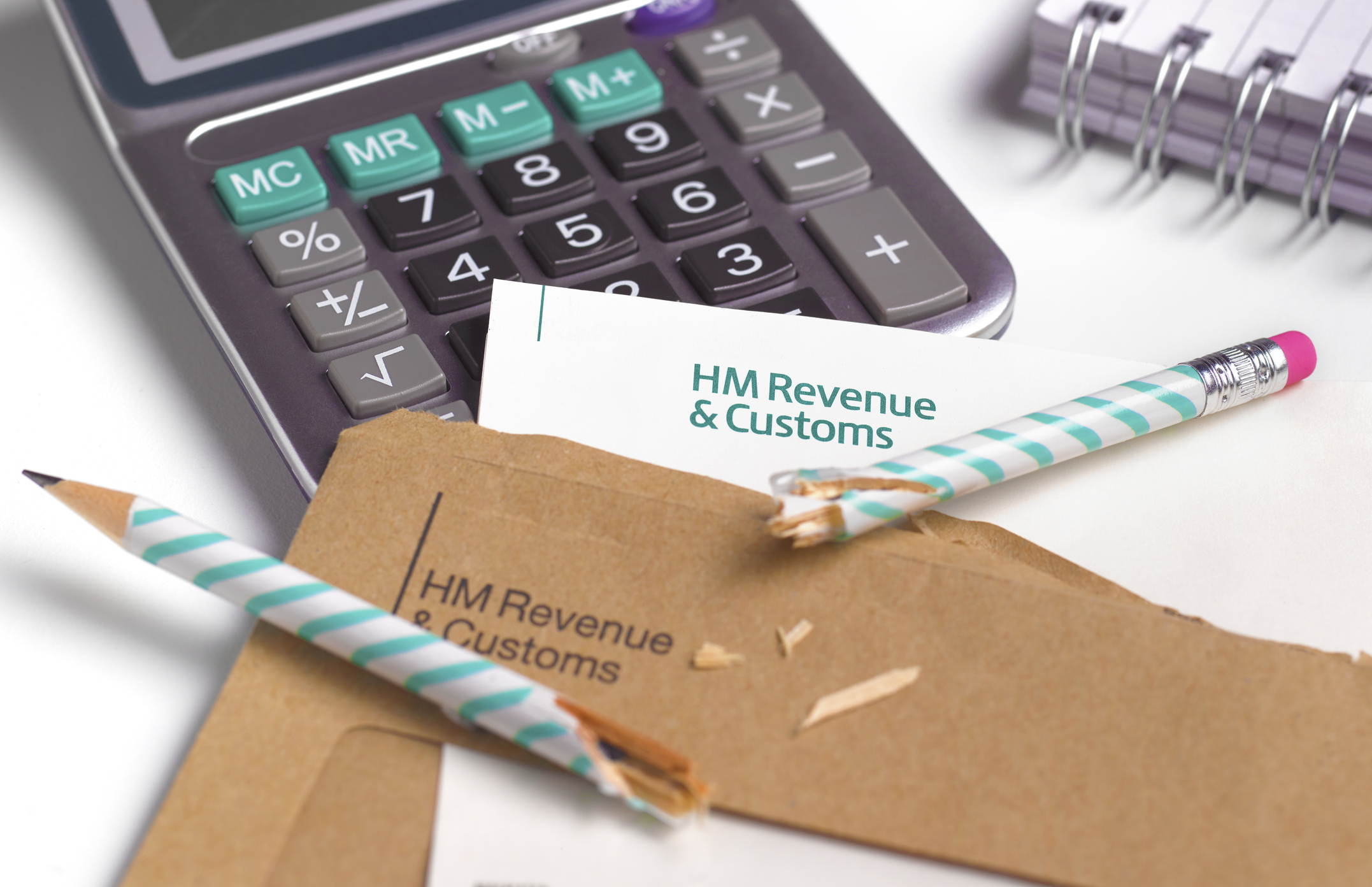'I've used my annual ISA allowance. How can I shield my savings from tax?'
As millions face paying tax on savings interest, we explore how to protect your money from the taxman. If you've used up your ISA allowance, we look at the other tax-efficient options.

Get the latest financial news, insights and expert analysis from our award-winning MoneyWeek team, to help you understand what really matters when it comes to your finances.
You are now subscribed
Your newsletter sign-up was successful
Want to add more newsletters?
Savers paying income tax on their nest eggs with no ISA allowance left have some other options if they want to shield their money from HMRC.
Over two million people are forecast to pay income tax on their savings interest in 2025/26 thanks to frozen income tax thresholds, a fixed personal savings allowance (PSA) and higher interest rates on saving accounts, according to research by investment platform AJ Bell.
Higher and additional-rate taxpayers are particularly vulnerable as their PSA’s are lower than basic-rate taxpayers.
Try 6 free issues of MoneyWeek today
Get unparalleled financial insight, analysis and expert opinion you can profit from.

Sign up to Money Morning
Don't miss the latest investment and personal finances news, market analysis, plus money-saving tips with our free twice-daily newsletter
Don't miss the latest investment and personal finances news, market analysis, plus money-saving tips with our free twice-daily newsletter
Despite inflation slowing to 3%, people’s hard-earned cash is still being eroded in real terms and even though savings rates have steadily fallen since 2023, returns could nevertheless be high enough to breach the PSA.
Alice Haine, personal finance analyst at investment platform Bestinvest, said: “While inflation has eased to 3% and is expected to fall to the Bank of England’s 2% target by April, that’s not only the issue savers need to consider.
“Many could still end up paying tax on the interest they earn, particularly on the most-competitive accounts, if their returns push them above their personal savings allowance.”
The prospect of having to pay tax on savings interest has seen the popularity of adult ISAs boom, with 15 million people paying into one in 2023/24, the highest amount since 2010/11.
The annual ISA allowance allows individuals to shelter up to £20,000 a year without paying tax on interest earned – or investment returns if you choose to use a stocks and shares ISA.
But what if you have already used up your ISA allowance for the year? Are there other tax-efficient options?
What is the personal savings allowance?
The PSA allows most people in the UK to earn a certain amount of savings interest tax-free each tax year. The allowance depends on your income tax band.
Basic rate taxpayers can earn up to £1,000 interest on their non-ISA savings and for higher rate taxpayers the limit is halved to £500. Top rate taxpayers do not have a PSA.
Premium Bonds
Premium Bonds offer savers the security of a government-backed bank, tax-free returns and the hope of a bumper £1 million jackpot win each month. Instead of paying interest, Premium Bonds with National Savings and Investments (NS&I) offer the chance to win monthly cash prizes of up to £1 million.
You can own up to £50,000 worth of Premium Bonds; each bond costs £1 and you have to hold a minimum of 25.
The Premium Bonds prize rate has been falling and is currently 3.6%, but will drop to 3.3% in April. Currently, there are 2,713,707 unclaimed Premium Bonds prizes worth £114,769,950 waiting to be claimed.
If you are one of the two lucky jackpot winners of the month that has won the £1 million prize you’ll have a visit in person from NS&I's Agent Million – an individual who informs lucky winners that they have scooped the biggest prize in the monthly draw.
Of course, you could win absolutely nothing and receive zero return on your money.
Pensions
A pension is a tax efficient wrapper that you can begin paying into when you start working either in a workplace scheme or a private pension – or both. You can actually start contributing from birth using a Junior Sipp (self-invested personal pension).
Taxpayers automatically get 20% added to personal pension contributions through pension tax relief, while higher and additional rate taxpayers claim their extra relief through a self-assessment tax return.
Returns on money invested in your pension are free of capital gains tax and income tax, so your savings can grow faster. Further, you can take out up to 25% of your pension completely tax-free.
There are limits to how much you can pay into a pension each year. The annual limit is £60,000 a year for adults and £3,600 for children. However, if you’re a high earner and your income is more than £240,000 a year, the tax relief you can get on contributions is limited to a reduced annual allowance, known as the tapered annual allowance. The £60,000 annual allowance reduces by £1 for every £2 over £240,000.
However, the trade-off for these unrivalled tax breaks is that you can’t access money saved in a pension until the age of 55 – rising to 57 in 2028.
VCTs
A VCT (venture capital trust) is a type of investment that allows you to back small UK businesses. A VCT itself is a fund that invests in a basket of typically 50-80 privately owned fast-growing companies chosen by a fund manager.
You buy shares in a VCT and for every pound you invest you can get up to 30p back in tax relief. This is being reduced to 20p from April. There’s tax-free capital gains and tax-free dividends and you can invest up to £200,000 into a VCT each year. To qualify for the tax break you must hold the investment for at least five years.
There are risks of course. VCTs invest in early-stage businesses, which are much more likely to fail, and charges can be high. Investments in VCT schemes are not protected by the industry safety net, the Financial Services Compensation Scheme (FSCS).
Enterprise Investment Scheme (EIS)
The EIS is another tax efficient way to back small UK businesses. You can invest in a single company or a fund that holds a basket of around 10 firms and get income tax relief at 30%. Returns are free of capital gains tax if held for three years and you can invest up to £2 million a year in qualifying companies.
EIS investments allow you to elect for all or part of your EIS shares bought in one tax year to be treated as though they were bought in the previous tax year.
While there is a risk of investing in smaller businesses, you can claim loss relief (at your marginal tax rate) if things go wrong. There is no inheritance tax due so long as you have had the EIS investment for two years when you die.
Recent analysis from wealth management firm Rathbones found UK investors who have used up their ISA and pension allowances are increasingly turning to VCTs and EIS’s to tax-wrap their cash.
Isabella Galliers-Pratt, senior investment director at Rathbones, said: “Once they’ve used ISA and pension allowances, the next question we hear from clients is: where does my next pound go?
“As wealth increases, investors are more willing and able to take on higher levels of risk. Greater financial resilience gives them the confidence to explore opportunities beyond mainstream wrappers.”
Offshore bonds
This is an investment tax wrapper held outside the UK in which you can invest a lump sum or make regular payments. You can choose from a range of investments including funds, discretionary investment managers and bank deposits.
The income and gains of the underlying investments are not taxed within the bond – the tax charge applies when there are withdrawals.
The amount of tax you’ll have to pay will be based on your marginal rate at that time. Though income from the bond could push you into a higher rate.
The rules of offshore bonds allow you to access up to 5% of the original capital per year without any immediate tax to pay. This withdrawal allowance is cumulative so if you don’t draw 5% in the first year you own it, in the second year you could draw up to 10%. This is something to consider with the help of a financial adviser.
Other considerations:
Paying off debts
If you have any debts then it might be more financially viable to pay them off rather than worry about tax bills.
Loans, credit cards and overdrafts are almost always the most expensive kind of debt. If you don’t use any regular borrowing you could consider paying down your mortgage.
Gifting for estate planning
If you’re in the fortunate position of having used your tax allowances for the year on savings and investment vehicles you deem appropriate, and still have money you don’t need attracting tax, you may wish to consider some estate planning.
Inheritance tax is charged on an estate, which is the property, money and possessions left behind to loved ones who will pay 40% on anything above the threshold.
You can leave up to the £325,000 threshold before loved ones face a tax bill. This tax-free threshold can be increased via the residence nil rate band.
The good news is that there are plenty of measures individuals can take to reduce the amount that HM Revenue & Customs (HMRC) can claim when it eventually comes to assessing IHT.
So if you have more money than you think you might need, you could consider handing over some of your wealth while you’re still around.
The ‘annual exemption’ allows you to give financial gifts, tax-free, to the value of £3,000. You can also give £250 to any number of people every year, but you can’t combine it with your annual £3,000 exemption. You can also give away all types of assets, including cash, property and shares tax-free, as long as you live for seven years after making the gift. Known as a “potentially exempt transfer”, it must be an outright gift from which you can no longer benefit.
There is a way of giving away unlimited cash without using the seven-year rule – as long as it’s from surplus income and doesn’t reduce your standard of living or force you to dip into your capital to cover day-to-day costs.
You might also consider setting up a trust which can mitigate inheritance tax. A financial adviser can help with this and all things surrounding estate planning, as well as making a will.
Get the latest financial news, insights and expert analysis from our award-winning MoneyWeek team, to help you understand what really matters when it comes to your finances.
Holly Thomas is a freelance financial journalist covering personal finance and investments.
She has written for a number of papers, including The Times, The Sunday Times and the Daily Mail.
Previously she worked as deputy personal finance editor at The Sunday Times, Money Editor at the Daily/Sunday Express and also at Financial Times Business.
She has won Investment Freelance Journalist of the Year at the Aegon Asset Management Media Awards in November 2021.
-
 Inheritance fights are up 80% – here’s why and what to do if it happens to you
Inheritance fights are up 80% – here’s why and what to do if it happens to youFamilies are increasingly disputing inheritances, as age-related and economic factors force a tussle over the last will and testament of loved ones. What should you do if you find yourself in the middle of a fight over money?
-
 The northern powerhouse city where first-time buyers are snapping up properties
The northern powerhouse city where first-time buyers are snapping up propertiesFirst-time buyers are “casting their nets” wider to find properties that match their budgets and lifestyles. We look at the top areas for first-time buyers.
-
 Two million taxpayers to be hit by £100k tax trap by 2026/27
Two million taxpayers to be hit by £100k tax trap by 2026/27Frozen thresholds mean more people than ever are set to pay an effective income tax rate of 60% as their earnings increase beyond £100,000. We look at why, as well as how you can avoid being caught in the trap.
-
 13 tax changes in 2026 – which taxes are going up?
13 tax changes in 2026 – which taxes are going up?As 2026 gets underway, we look at what lies ahead in terms of changes to tax rates and allowances this year and how it will affect you.
-
 How to limit how much of your Christmas bonus goes to the taxman
How to limit how much of your Christmas bonus goes to the taxmanIt's Christmas bonus season but the boosted pay packet may mean much of your hard-earned reward ends up with HMRC instead of in your pocket
-
 Over 1 million pay 45% rate of income tax as fiscal drag bites
Over 1 million pay 45% rate of income tax as fiscal drag bitesHundreds of thousands more people are being pushed into the additional rate tax band by fiscal drag
-
 Simple assessment explained as millions brace for unexpected tax bills
Simple assessment explained as millions brace for unexpected tax billsIncreasing numbers of people could get letters from HMRC saying they owe more tax due to frozen thresholds, under a system known as simple assessment. Here is what it means for you.
-
 What are wealth taxes and would they work in Britain?
What are wealth taxes and would they work in Britain?The Treasury is short of cash and mulling over how it can get its hands on more money to plug the gap. Could wealth taxes do the trick?
-
 When is the self-assessment tax return deadline?
When is the self-assessment tax return deadline?If you are self-employed, rent out a property or earn income from savings or investments, you may need to complete a self-assessment tax return. We run through the deadlines you need to know about
-
 Child Benefit: how it works, eligibility criteria and how to claim
Child Benefit: how it works, eligibility criteria and how to claimChild Benefit is worth hundreds of pounds per year and claiming it can help build up your state pension entitlement but there are tax pitfalls. We look at who is eligible and how to get the payment